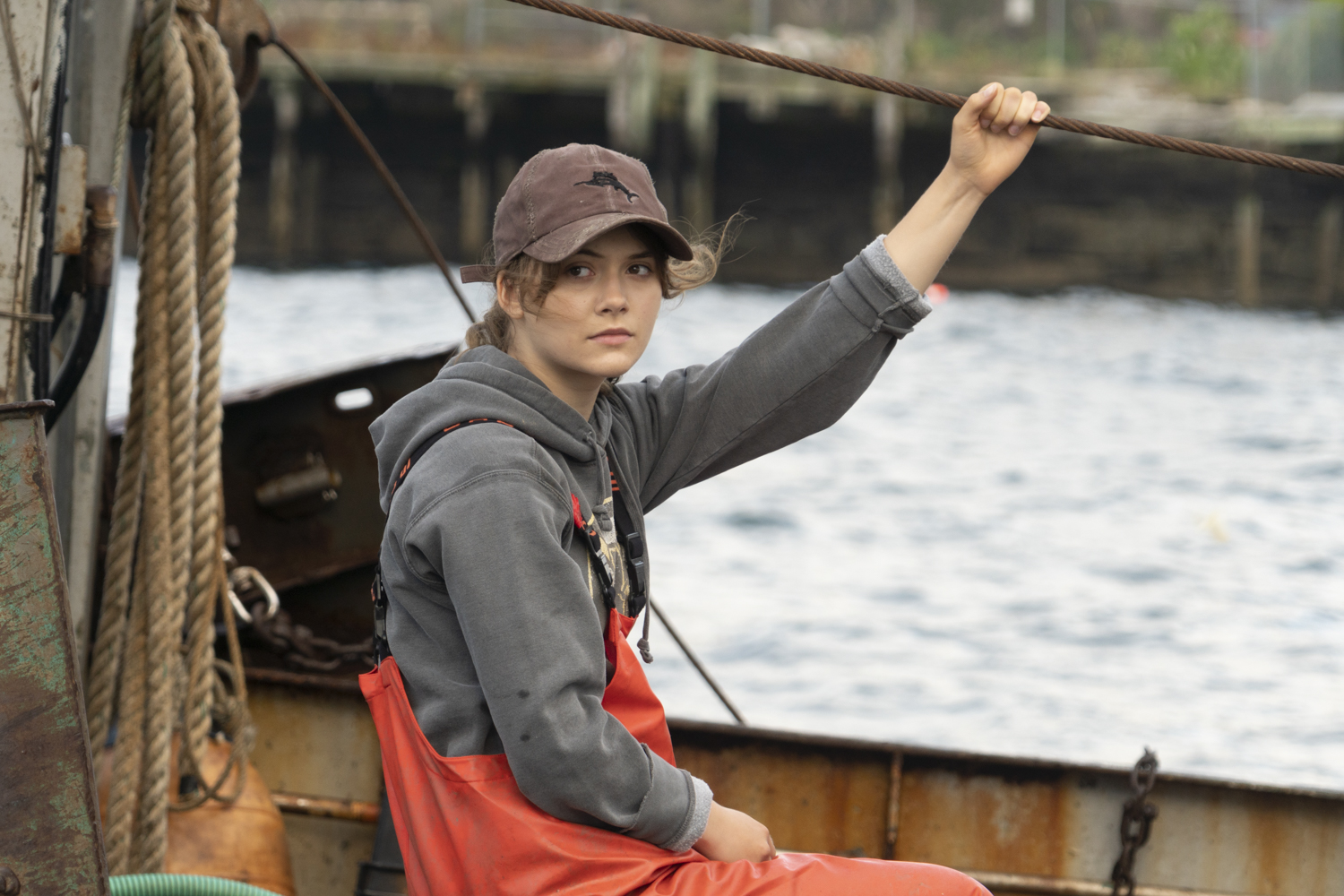It’s hard to judge Siân Heder’s Coda outside of its context: being one of the opening feature films to the 2021 Sundance Film Festival, a (now-virtual) place known for family dramas and indie darlings. Depicting the high school struggles, and coming-of-age of the only hearing girl in a deaf family, Heder’s follow-up to Tallulah (another Sundance selection) takes its name from an acronym––Children Of Deaf Adults––though it’s determined to stray from any generalizations. With big warmth and bigger care, Coda overcomes its tropes and somewhat formulaic nature to produce a heartfelt tale of family, wrapped in a coating of love. In that way, it might be the ideal film to start one of the world’s biggest festivals during a seemingly never-ending pandemic, one that splinters families as well as hopes and dreams of child and parent alike.
The film focuses on Ruby (Emilia Jones in a breakout performance), a high school senior with ambitions far beyond her family’s fishing business. Her role shifts throughout the film, from daughter to interpreter to singer back to interpreter to teenage girl. She acts older than her age, and she shoulders responsibilities above her pay grade. It’s easy to begin to see her as the glue that holds the Rossi family together, keeping them out of trouble, negotiating with local fishing bigwigs and bullies, and translating at doctor’s appointments. As with many high schoolers, she has a different dream, hoping to pursue singing at the Berklee College of Music, with the help of her choir teacher Bernardo Villalobos (a hyped-up Eugenio Derbez). Much of the film turns its eye on this balancing act, an impossible one at that.
Coda is telegraphed sporadically, cropping up with scenes of a love interest in fellow choir member and noted Sing Street band alum Miles (Ferdia Walsh-Peelo), alongside familiar beats of tension, financial difficulty, and parental pressure to stay and “support the family.” Ruby is paired with Miles for a special duet which will be performed at the end-of-semester performance, and the sparks begin to fly, with a hint of High School Musical as they sing face-to-face, which I swear is a compliment.
Jones elevates these scenes, and any others that fall into predictable territory, with such weight and presence that they take on enough meaning and merit to dismiss the inherent faults. Matching her step-by-step is her mother in the film, the indomitable Marlee Matlin, who will forever deserve more opportunities to show her ever-increasing ability and empathy on the big screen. The rest of the family, filled in by father Troy Kotsur and brother Daniel Durant, do a caring and more-than-respectable job at showing the daily difficulties of living with deafness, and the sacrifices necessary to be successful with this impairment. As much as Coda is a film about growing up and moving out, it’s a story about the deaf community, told with responsibility and consideration.
Coda, even with all of its imperfections, drives home a truckload of emotions in its final act, filled with more silence than noise. It rests in the uneasiness, yet normalcy of this noiselessness, instead forcing you to look around and notice how each person is reacting, similar to the Rossi family. It’s a knockout of the heart, and in this case, you might be crying tears of joy, a welcome start to a festival known for its stories about family. Heder’s sophomore effort deserves praise for its attention to detail, its willingness to go the clear extra mile, and its massive display of affection towards these characters and this community. It should make a star out of Jones, and plaster a sobbing grin on any audience member that is able to look past its faults and just enjoy the music.
Coda premiered at Sundance Film Festival.

